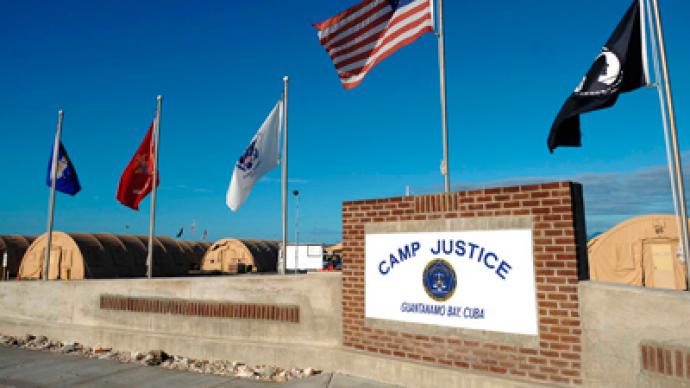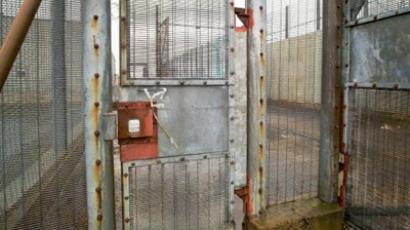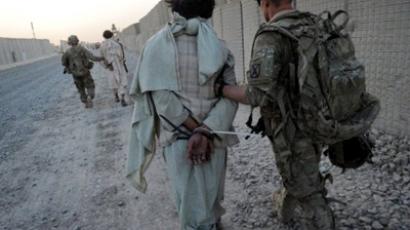ACLU and media challenge transparency of 9/11 trial

As legal proceedings move forward for five Guantanamo Bay prisoners charged with roles in the September 11 terrorist attacks, the US government wants the court to censor their testimonies in a move civil liberties lawyers condemn as “chilling."
Prosecutors in the case against Khalid Sheikh Mohammed and four other Gitmo inmates accused of involvement in the 9/11 attacks have asked a US military judge to consider a protective order that, if approved, would delay any courtroom discussions by as long as 40-seconds to ensure that no classified information is made available to the media or others.
By doing such, prosecutors claim top-secret details about harsh interrogation techniques and special tactics enforced on the prisoners will be kept from the public and press, a necessity they say in the name of ensuring national security.
"Each of the accused is in the unique position of having had access to classified intelligence sources and methods," the prosecution says in court filings obtained by the Associated Press. "The government, like the defense, must protect that classified information from disclosure."
This position outraged the ACLU and some members of the media, including the AP, who are now demanding in court that the government act more transparent in their prosecution.
"What we are challenging is the censorship of the defendant's testimony based on their personal knowledge of the government's torture and detention of them," ACLU attorney Hina Shamsi tells the AP, adding that her opinion is the prosecution’s suggestions would "classify the defendants own knowledge, thoughts and experience.”
"It's a truly extraordinary and chilling proposal that the government is asking the court to accept," Shamsi says.
Attorneys for the defense say the result could be much more damming that just risking disclosure, though, as it will censor prisoners from going public about any mistreatment and torture they were subjected to while under years of CIA-sanctioned detention.
"It's a way in which the government can hide what it did to these men during the period of detention by the CIA," Army Capt. Jason Wright, a Pentagon-appointed attorney for Mohammed, tells the AP. "I think we need to bring the truth to the light of day on these issues."
If the court agrees to accept the proposal, details about “advanced interrogation technique” forced onto prisoners, such as the drowning-simulation act known as water-boarding, could be kept from ever escaping the courtroom. Inmate testimonies would be subjected to nearly a one-minute delay, allowing the government to stop the disclosure of any details they may wish to remain under lock-and-key. And while this order has been proposed under the guise of national security, defense attorneys argue that it’s being brought up to keep the truth about years of torture from ever being brought up.
To KTRK News, Capt. Wright suggested he was adamant about bringing all facts regarding his client’s detention to the court and stressed that it has a major role how the rest of the case will move forward, whether or not the government approves.
"Torture matters because, quite frankly, America is better than this," Wright tells the network. "Other counsel has explained the legal relevance as to why it's important for this case, why it's part of the mitigation case, why we have an obligation as defense attorneys to tell the history of our clients."
Mohammed has previously confessed to military officials that he planned the September 11 attacks against America “from A to Z” and has admitted to being involved in dozens of other terrorist plots. He was arraigned on May 5, 2012 on charges that include terrorism, conspiracy and 2,976 counts of murder, along with co-defendants Ramzi Binalshibh, Walid bin Attash, Mustafa Ahmad al-Hawsawi and Ali Abd al-Aziz Ali.














